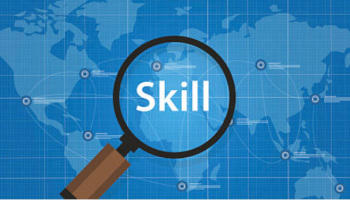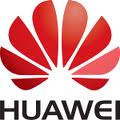 The Vodafone Connected Worker report was commissioned with research undertaken by Accenture across 12 markets (DRC, Egypt, Fiji, Ghana, India, Qatar, Lesotho, Mozambique, Kenya, South Africa, Tanzania and Turkey). The report highlights six mobile services that will bring secure wage payments, learning programmes and workplace safety reporting to workers in emerging markets internationally. These services will help in wider financial benefits for organisations, saving them $30.6 billion by 2020 through improved productivity, while providing $7.7bn of financial benefits to workers and enable organisations to become more efficient.
The Vodafone Connected Worker report was commissioned with research undertaken by Accenture across 12 markets (DRC, Egypt, Fiji, Ghana, India, Qatar, Lesotho, Mozambique, Kenya, South Africa, Tanzania and Turkey). The report highlights six mobile services that will bring secure wage payments, learning programmes and workplace safety reporting to workers in emerging markets internationally. These services will help in wider financial benefits for organisations, saving them $30.6 billion by 2020 through improved productivity, while providing $7.7bn of financial benefits to workers and enable organisations to become more efficient.
For India, Vodafone Connected Worker report specially touches upon the below Mobile Services –
- Job Finder is a subscription-based service, which has potential to reach 49 million workers, and could match 12 million workers to jobs annually by 2020, improving livelihoods by US$5.6 billion. This service can be operated through basic handsets as well and has the advantage of reaching a wide section of the workforce, particularly those who are unskilled.
- Fieldforce Enablement service provides remote access to corporate systems and facilitates better scheduling, enhancing the productivity, safety and effectiveness of workers that will be beneficial to employers as well as employee. This service could be utilised for improving the working lives of 30 million users and provide an operational benefit to organisations of US$24.9 billion annually by 2020. Features of Fieldforce applications include providing work-scheduling and task notification, improving coordination with colleagues, providing access to business systems, enabling remote data capture and customer transaction logging and providing route planning or location-based information.
- mLearning service could deliver basic skills training in literacy and numeracy as well as job-related training via mobile. The primary audience for using mLearning service would be employed workers, where mLearning could offer specific updates around product knowledge or health and safety issues. mLearning could provide cost-effective and affordable lessons delivered by voice, SMS or USSD (Unstructured Supplementary Service Data) and has the potential to reach 12 million workers and benefit organisations by US$1.4 billion annually by 2020.
- mIdentity solutions – can be used to enhance corporate security and provide authentication for workers when dealing with customers. By 2020, this could reach 16 million people and offer organisational benefits of US$1.5 billion annually.
At Vodafone, tapping emerging markets is driven by two overriding aims: to empower people who want to better themselves and their families and to create profitable new income streams for the business through the rollout and adoption of the technology.
Other Mobile Solutions identified in the report include –
- mPayroll – could enable secure, cost-effective wage payments to be made to millions of unbanked workers by 2020, reducing corruption, lessening the risk of payday robbery and reducing the time spent travelling and waiting to receive cash wages.
- Worker Panel – could enable large organisations to better understand real-time working conditions experienced by workers in their supply chain. Worker Panel has the potential to reach 18 million users and provide an estimated livelihood benefit of US$2.1 billion annually, through improved pay and conditions.
In India, MobME Wireless Solutions part of mIdentity has developed a unique initiative Mobile Express, a mobile digital signature service that embeds a legally valid digital signature into the SIM of any mobile phone. Currently in test, the signature is secured by a four-digit PIN and will be used to securely authenticate any transaction, sign any digital document or authenticate a bank payment. In India, digital signatures are a valid and legally recognized equivalent to normal, everyday signatures, meaning that anything that can be authorised in real life using an individual’s signature can be signed for with a mobile phone. It will also be possible to use this technology for doctors to sign prescriptions and for individuals to apply for a passport or file a birth certificate, for example, by providing their signatures digitally and remotely using their mobile phones.
Vodafone Connected Worker also highlights that mobile phones can be used to improve, and potentially, save lives in global supply chains. High mobile phone penetration in emerging markets enables purchasers to conduct anonymous text-based surveys quickly and cheaply across their supply chains to gather information on safety and work environment issues, says the report. Companies are increasingly focusing on ensuring working conditions and pay in their global supply chains is acceptable.
Across the examined markets, startup businesses, as well as more mature organisations, are experimenting with technology to solve challenging problems. The observations from the report for India specifically covers:
- In India – the GDP has grown from US$ 729 in 2005 to US$ 1370 in 2010 i.e. 13{af589cdba9d77786c8c861317dbad60bba1e2ebbf56e2ffab874a1b59fde9ce3} over the last five years
- Workshops held in India attended by over 30 external stakeholders who came from the private, public and not-for-profit sectors. In addition, in-depth interviews were also conducted with over 40 stakeholders who were all experts in different elements of business and the workplace environment
- India has a young workforce: 50{af589cdba9d77786c8c861317dbad60bba1e2ebbf56e2ffab874a1b59fde9ce3} of its 1.2 billion people are currently aged under 25. The country’s working population is therefore expanding rapidly; about 110 million workers will be added to its labour force over the next two decades.
- The Indian National Budget statement 2012 points to a similar shift, reporting that the service sector now contributes 55{af589cdba9d77786c8c861317dbad60bba1e2ebbf56e2ffab874a1b59fde9ce3} of GDP and about a quarter of total employment in the country.
- Mobile penetration rates in most of the markets researched have been escalating rapidly over recent years. In India, subscriptions have doubled to around 60{af589cdba9d77786c8c861317dbad60bba1e2ebbf56e2ffab874a1b59fde9ce3} of the population in just three years. Even those with no formal identity, no address or bank account and with limited literacy levels, are able to use mobiles and can participate in the mainstream economy more effectively thanks to the advent of mobile technology.
Mobile internet is a transformational technology emerging in India because the provision of information has become accessible to almost everyone. The number of mobile internet users in India is expected to nearly double to reach 165 million by March 2015, as per Vodafone Connected Worker report and also according to the Internet and Mobile Association of India (IAMAI),Mobile Internet in India will be used for the following:
- To find stable employment
- To take up seasonal or temporary roles
- To acquire the skills necessary for jobs in a changing employment market
- To find and recruit sufficient skilled workers to fill the roles available
Andrew Dunnett, Vodafone Group’s Director of Sustainability and Director, Vodafone Foundation, says: “Mobile solutions have the potential to improve workers’ lives and save money in the boardroom, helping organisations improve productivity, transparency and security. Whether it is mobile monitoring of the supply chain or using a mobile phone to pay wages, the potential for positively transforming the workplace in these markets, for both employers and workers, is significant.”
Justin Keeble, Managing Director, Accenture Sustainability Services, Europe, Africa and Latin America, says: “Mass ownership of mobiles in emerging markets enables western brands to connect directly to workers in global supply chains. Using simple SMS messages, brands can monitor workplace conditions in real time – supporting improved labour standards and workplace safety.”





